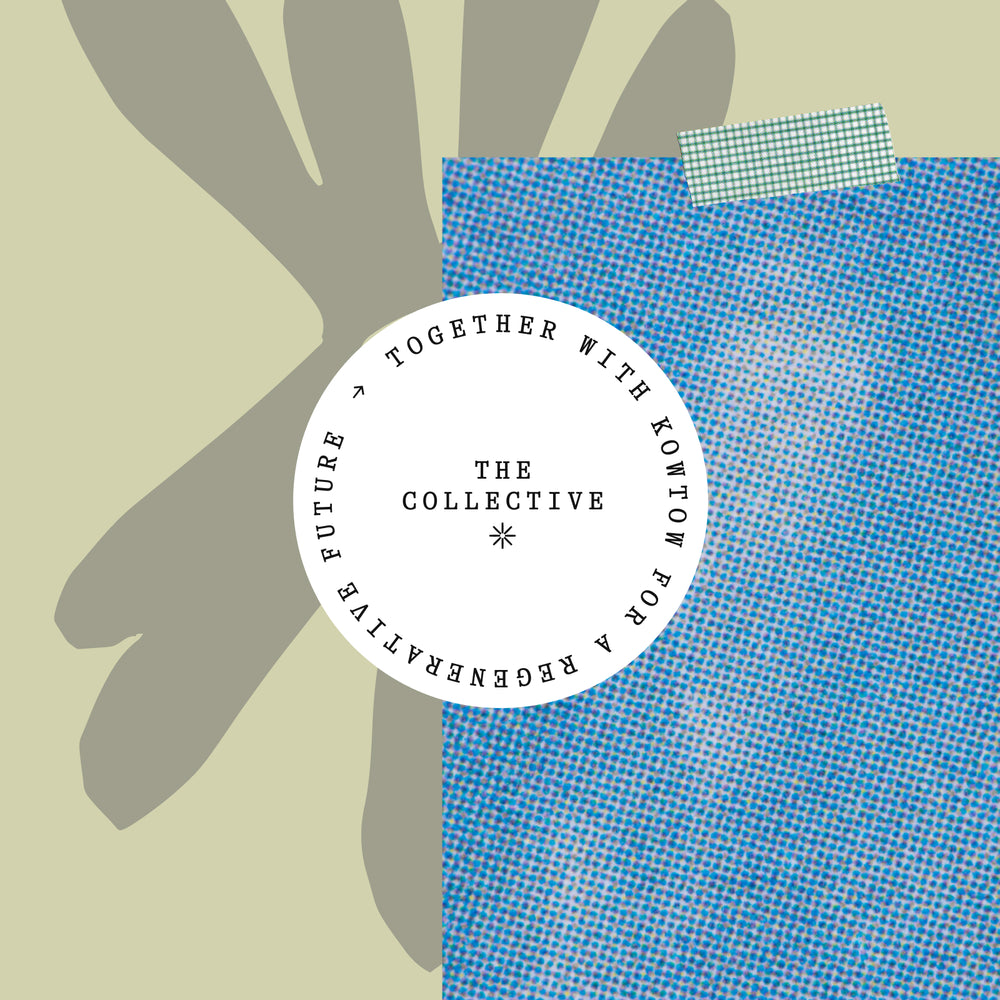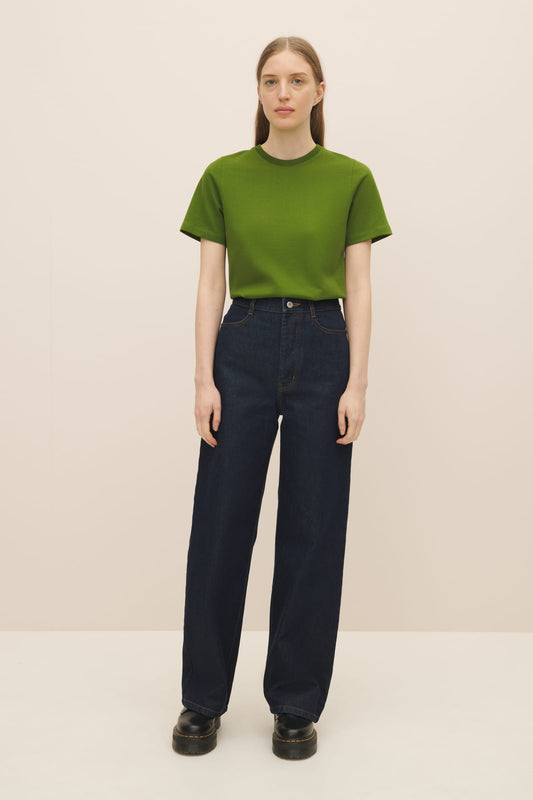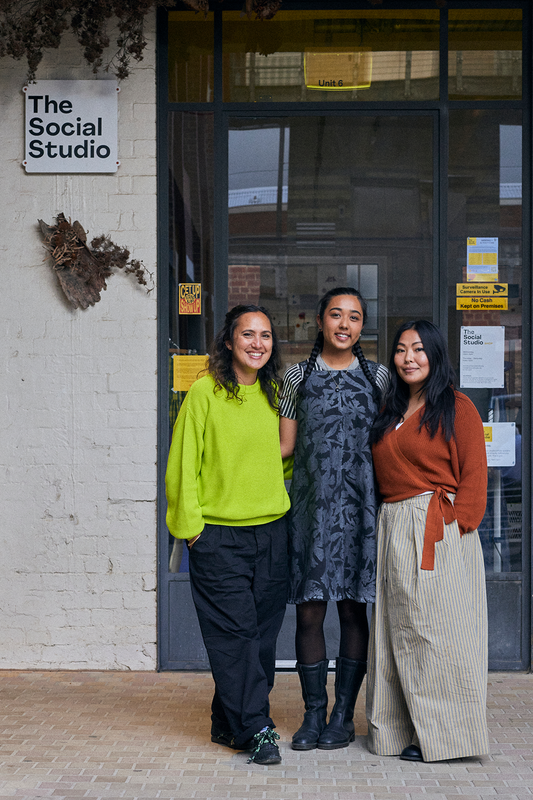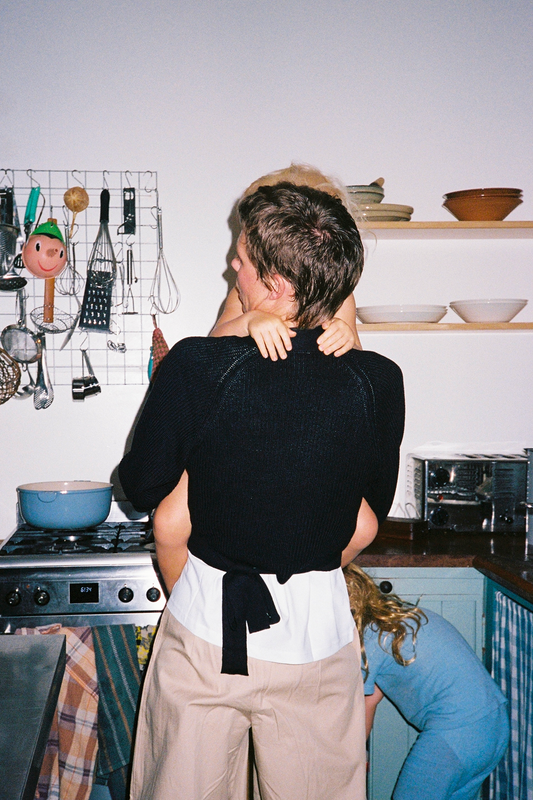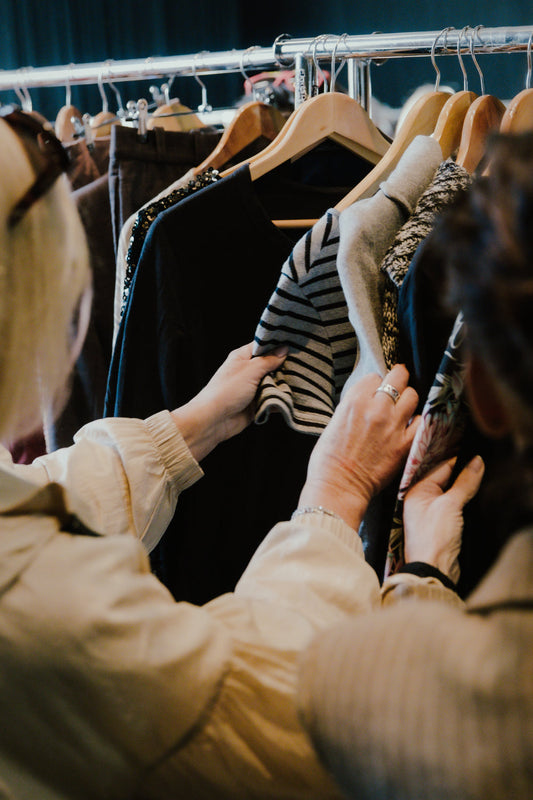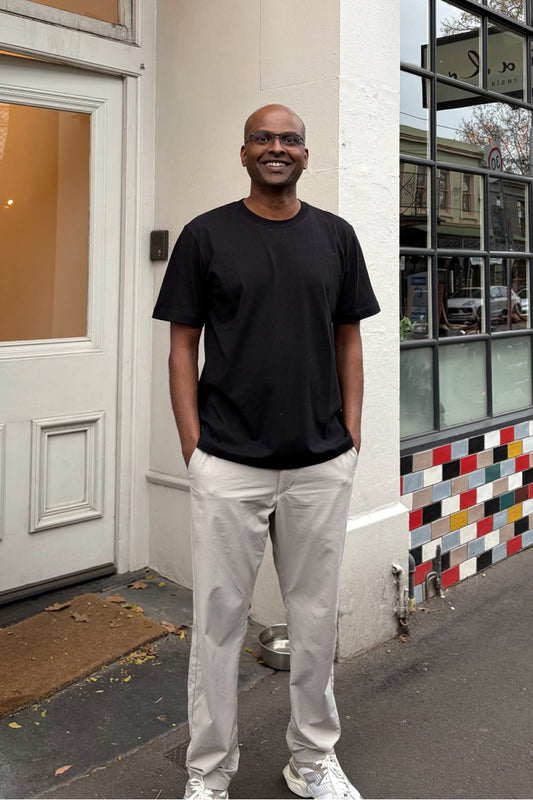
Fashion Revolution Week asks us to consider what we wear, who makes our clothes and why transparency and accountability are paramount in the fashion industry. This year we wanted to spotlight a member of the Kowtow community who we think is revolutionary in the way they document and see fashion.
Liz Sunshine is a documentary fashion photographer based in Melbourne. In 2022, Liz launched Our Relationship With Clothes – a project that asks people questions about their clothes, to cultivate a positive and empowered connection with getting dressed. Liz is building a community of like minded individuals who love fashion and believe in bringing awareness to consumption, textile waste and social injustice.
This conversation with Liz is a thought provoking way to think about our wardrobes, how we get dressed and how clothing can be an extension of how we choose to live.
Kowtow: Kia ora Liz, what prompted you to start the Our Relationship With Clothes project?
It was the beginning of 2022 when I realised I didn’t have a great relationship with clothes. Even though I had beautiful and basic clothes hanging in my wardrobe waiting to be worn, my thoughts and feelings around getting dressed were often clouded in negative emotion and a lack of confidence.
At the same time, The Guardian published images of the clothing dumps in the Atacama desert in Chile and a combination of the two made me feel compelled to deep dive into my own behaviour and ask why. Why after more than a decade in fashion did I feel I understood myself and my clothes less? How could I change? And dress ‘better’ in the process?
I started questioning fashion through my social channels, and questioning myself through daily Q&A’s. I love fashion, and I believe in the power of clothes to connect us to others - but now, more importantly I also believe in the power of clothes to reconnect us to ourselves and our bodies.
What has it taught you so far about the impact of what we wear? Be it socially, environmentally or personally?
That I am not alone. That it’s hard to change. That having a community of like minded individuals around you is everything. Owning and buying less clothes has become an incredibly satisfying experience that is helping me to reconnect with myself and further define my signature style in the process.
Have you ever thought about your clothes in connection to your values? What story do your clothes tell about you?
My Dad was the person who first got me thinking about my values. He answered one of my Our Relationship With Clothes questions and said he hoped his clothes told the story of his values. Natural fibres because he values the environment and indigenous prints in support of indigenous communities.
That was two years ago. Before that moment I had never thought about it, and now, I think about it every day.
If I looked into my wardrobe the story of my clothes would tell you I’m a work in progress. I have made some really good choices. I wear the clothes I love on repeat - but there is a whole section dedicated to clothes I don’t wear, collected over my life so far.
I am at least proud to say there hasn’t been anything NWT for the last decade or so, but there are so many pieces that once promised new beginnings or memories that sit unworn. Removing these clothes will happen later in the year because I believe less is more.
Less, but of more personal value to me.

Have you ever thought about the lifespan of your clothes? Which fabrics wash well and wear in rather than out?
This is new for me. Unlike Kowtow, my clothes are not all plastic-free. Even clothing that I have bought recently contains polyester, and it’s something I am thinking about more and more. Initially, I thought I needed ‘hard-wearing’ clothes. When I’m documenting people at fashion events I move so fast that it's often in absolute disregard for my clothes, using them as a tool rather than adornment, helping me facilitate the picture I am chasing.
Now as I consume less and learn how to take better care of my clothes, I realise that fabrics such as cotton and denim (also cotton) last just as long.
For me, learning how to reconnect with my clothes is a journey of self-discovery. So often the conversations we have around clothing and sustainability are clouded with guilt and shame, but my perspective comes from a place of curiosity and personal growth. I’m looking for sustainable change and that takes time.
Recognising that no two people have the same lived experience, needs, occupation, values or budget, acknowledges that no two wardrobes should look the same. In a values-based fashion world, there is no right or wrong way to dress, there is only individuality.
What advice would you give to someone who wants to start considering what they wear in a new way?
Ask yourself questions and journal. I believe there is no single path to consuming less, but by asking yourself questions and taking the time to respond properly to those questions you might just discover yourself.
In the first month of changing my relationship with clothes I asked myself 3 questions daily.
What was I wearing? How old was the oldest piece of clothing I was wearing? How old was the newest piece?
That month I discovered I wore the same outfit or type of outfit everyday. Jeans and a tee, or a shirt, and sneakers or boots. I also realised that most of the time I was wearing something purchased within the last month and that I was buying the same clothes on repeat. I became aware that because I wasn’t taking care of my clothes properly, my white t-shirt didn’t feel shiny for long and I would need to buy a new one to get the same feeling. I stopped repurchasing, but it took me a further 6 months to start taking care of my white clothes properly. Life is busy. And when you are trying to create sustainable change it takes time.
How can people think about fashion in a revolutionary way?
Revolution is all about change, and in truth, fashion needs so much change. There are the gigantic issues of worldwide pollution, human rights and social inequality. Plus individual issues of mental health, overconsumption and dissatisfaction. Though we need reform by governments and to hold companies accountable which takes time, there is an opportunity for every individual to make change.
For over a decade I have photographed Australian fashion. I have seen visual fashion trends come and go, and also witnessed deeper underlying cultural shifts. Addictions to devices. Impulsive rapid-fire purchases. Connection online, but disconnection IRL. A loss of industry, locally. A loss of knowledge, individually.
Do you know where your clothes are made? By whom? Of what? Can you take care of them without YouTube? Australians consume an average of 56 items a year. The soft activist in me wants to halve that and then reduce it even further.
The revolution I want to be a part of is one where we reclaim our individual approach to dressing and our individual aesthetics. A world where we value clothes not for their newness, but for their wear.
